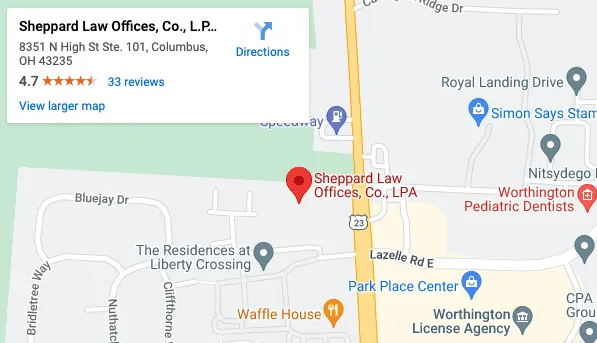Tax Appeals

WHAT IS A TAX APPEAL?
Tax appeals are a method in which the taxpayer and IRS resolve a disagreement through the mediations of the appeals office. This is typically done when the IRS makes adjustments that you do not agree with on your tax return. Instead of just accepting the adjustments and potentially having to pay more taxes, you can disagree with the adjustments and draft a formal written protest to the IRS appeals office.
WHAT CHANGES TO MY TAXES CAN BE APPEALED?
Generally speaking, any adjustments made by the IRS can be appealed. This includes any disallowing of deductions or credits, penalties, and interests added to your tax bill, tax liens, levies, or seizures announced by the IRS. You can also appeal installment payment agreements and even Offers in Compromise.
HOW DO I REQUEST A TAX APPEAL?
To request a tax appeal, you must draft a formal letter of appeal stating your disagreement with the decisions made with regards to your taxes and prove why you disagree. Then, mail the letter of appeal to the same address stated in the letter explaining your appeals rights.
If the case is not resolved when it is sent to the IRS and your reasoning has validity, then the appeal will be sent to the appeals office for further consideration. When requesting a tax appeal, you can either represent yourself on the appeal or have a professional tax attorney represent you. If choosing the latter and you would like only your representative to deal with the situation, you must fill out Form 2848 (Instructions).

SETTLE YOUR DEBT AND TAX PROBLEMS Today!
Contact Us Now!
TAX
HOW DO I FILE A FORMAL WRITTEN PROTEST FOR MY TAX APPEAL?
- Your contact information (Name, Address, Phone Number)
- Drafted letter to the Office of Appeals indicating your wish to appeal the decisions made by the IRS
- Copy of the letter you received from the IRS stating the changes
- Tax period in which the changes are involved
- A list of all the changes with which you disagree and the reasons you disagree with each change
- Facts that support your disagreements with the changes
- The penalties of perjury statement, “Under the penalties of perjury, I declare that the facts stated in this protest and any accompanying documents are true, correct, and complete to the best of my knowledge and belief”, signed by the individual requesting for the appeal
HOW DO I FILE A SMALL CASE REQUEST FOR A TAX APPEAL?
A small case request requires far less information than a formal written protest and is favored if available. In order to file a small case request, simply follow the instructions listed on the letter explaining your rights to appeal and fill out Form 12203. The completed form can then be mailed back to the IRS address listed on the letter just like a formal letter of protest.
WHAT ARE MY TAX APPEAL RIGHTS?
DISPUTING IRS TAX COLLECTIONS
This can be done by completing the Request for a Collection Due Process or Equivalent Hearing form, Form 12153 and sent to the same address that is shown on your CDP notice. By doing so you are given the opportunity to dispute any IRS tax collections that have been declared against you. Keep in mind that most of the time, the IRS audit leading to the change is correct and the taxpayer must pay the amount declared by the IRS.
RESOLVING IRS BACK TAXES
Back taxes do not have to be paid one lump sum of cash. The IRS provides a variety of options for taxpayers to pay their tax liabilities without putting them in financial difficulty. This can be through installment payments, CNC (Currently Not Collectible) statuses, or even an offer in compromise (OIC). Installment payments allow taxpayers to pay back their tax debts in monthly installments.
WHAT CAN YOU EXPECT FROM A TAX APPEAL?
If your appeal stance holds significant validity, then an Appeals employee will review the issue and get in touch with you via phone or in person. They will then hold a hearing in which both sides of the case will be heard by the Appeals employee. If an agreement between the taxpayer and IRS is reached, then the Appeals officer will issue a Form 870, Consent to Proposed Tax Adjustment.
SHOULD I CONTACT A LAWYER FOR AN IRS TAX APPEAL?
Don’t know where to start when filing for a tax appeal? Want to get the best result possible? Contact Sheppard Law Offices, Tax attorney Kenneth Sheppard Jr. and his team of tax attorneys are trained on nationwide and Ohio tax laws. We’re ready to help get you with all tax issues.
Our Ohio locations are in Columbus, Newark, Mount Vernon, Akron, and Canton, Ohio. Call us to schedule your free initial consultation today, our toll-free number is (614) 523-3106.





